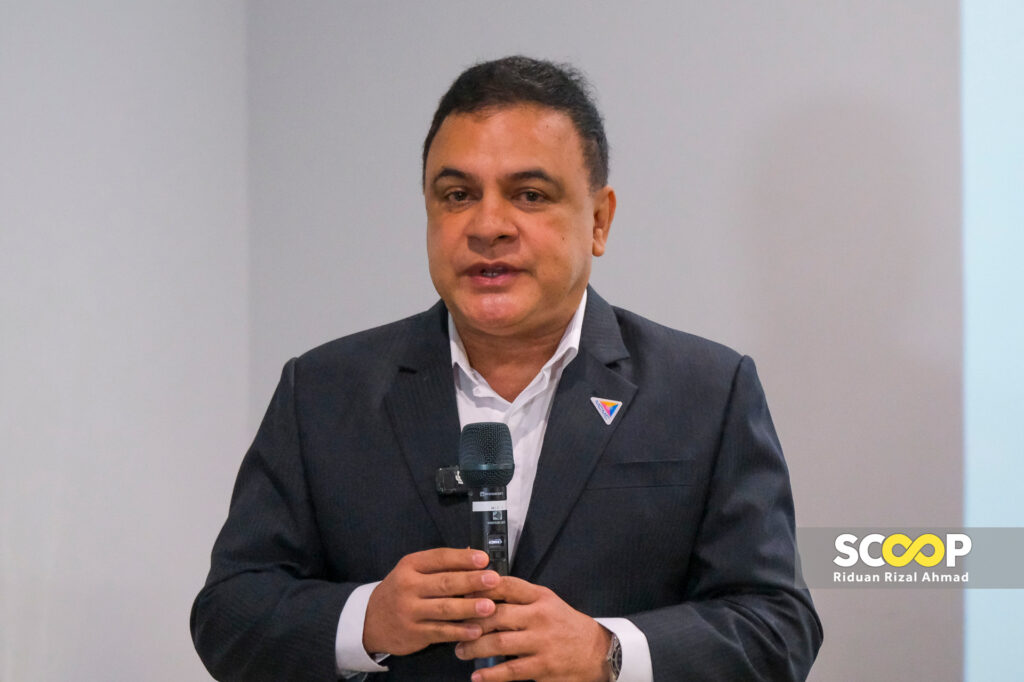KUALA LUMPUR – The Malaysian Communications and Multimedia Commission (MCMC) has reassured the public that the introduction of social media licensing requirements is primarily a measure to protect consumers.
MCMC commissioner Derek Fernandez clarified that the policy is not targeting social media users directly, but rather aims to ensure platforms adhere to local laws and safeguard users from online threats.
The need for such a policy, Fernandez explained, stems from the growing presence of sexual predators, cyberbullies, and scammers in the digital space.
“I come from a perspective that it is the duty of the government to protect its citizens from threats both domestic and foreign,” Fernandez said.
“In recent years, we noticed that the policy of digitalisation which we have pursued has brought a lot of benefits. It also seems that these benefits, which have greatly helped everybody, also came with some disadvantages, some harms, some threats to public safety and security,” he added during his appearance on the Trick Lama podcast.
The podcast, hosted by Big Boom Media Group’s editor-in-chief Terence Fernandez, group chief executive Datuk Zainul Arifin, and group executive director Datuk Ahirudin Attan, is expected to be released on December 30.
Fernandez further discussed the rise of scams, noting that emerging technologies like artificial intelligence and deepfake videos have made it easier for malicious actors to deceive the public and even incite harm.
While it is often assumed that older individuals are the most vulnerable to such fraud, Fernandez pointed to recent cases that challenge this view.
“There was a prominent scam case in Hong Kong, where millions were transferred as a result of a deepfake video call. So we’re getting to the stage where we can’t trust what we hear and see anymore,” he explained.
“People who were able to exploit this technology can convince an individual that they are somebody they are not and influence them to do certain things.”
Fernandez was referring to a February 2024 incident in Hong Kong, where fraudsters used deepfake technology to impersonate senior executives of a company, leading to the transfer of HK$200 million of the organisation’s funds to the criminals.

Why target social media platforms?
Although social media companies have internal policies designed to protect their users, Fernandez stressed that these measures are not enough.
“When scam cases occur on social media, these platforms – often registered overseas – are typically slow to respond to information requests from Malaysian authorities,” he said.
By requiring social media platforms to establish a corporate presence in Malaysia, Fernandez believes it would be easier for authorities to cooperate with the companies during cybercrime investigations.
“Now, why can’t a person who lost their money (to scams) have recourse? In the normal world, the person should be able to sue the platform,” Fernandez remarked.
“If we have a law to say anytime you get cheated and the platform did not take reasonable care, you should be entitled to compensation, that would help consumer protection. So I suppose consumer protection is what we are talking about,” he continued, adding that the platforms included those in financial services.
Similarly, Fernandez highlighted that local regulations could help tackle issues like online bullying. He pointed to the tragic case of TikTok influencer Rajeshwary Appahu, who died by suicide on July 5 following cyberbullying. One of the perpetrators, Shalini Periasamy, was fined just RM100 under the Minor Offences Act 1955.
“The sentence was inadequate,” Fernandez said. “The licensing requirements and amendments to the Communications and Multimedia Act 1998 (CMA) could prevent such situations from happening again.”
Fernandez also explained that for successful prosecutions, authorities need evidence, and sometimes, digital platforms fail to provide it.
“So in order to sustain a charge, they (prosecutors) need evidence. We do not know whether the live streaming that took place (during the cyberbullying of Rajeswary) was saved or recorded,” he said.
“The new guidelines which are going to come out by MCMC will require the platform to keep the data, at least for a certain period of time, and if there is a police investigation, to save the data,” Fernandez added.
The new social media licensing requirements are expected to take effect on January 1, 2025. These regulations will apply only to social media and messaging platforms with more than 8 million users. – November 29, 2024


